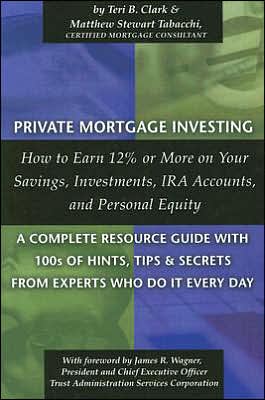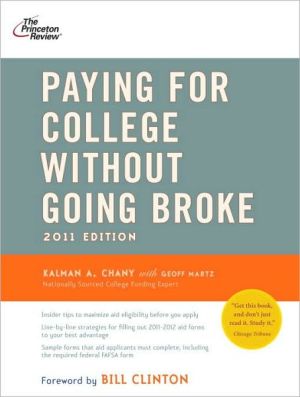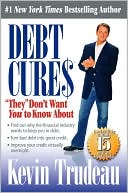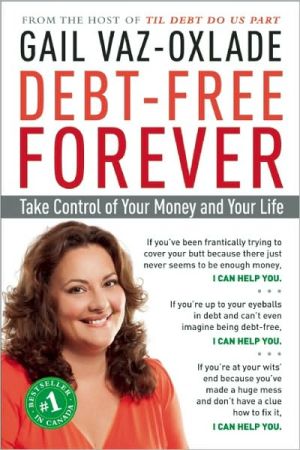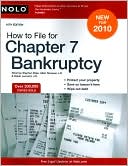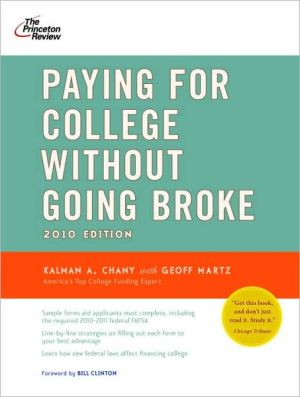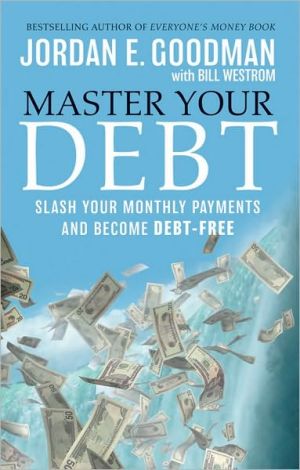Private Mortgage Investing: How to Earn 12% or More on Your Savings, Investments, Ira Accounts, and Personal Equity - A Complete Resource Guide with 100s of Hints, Tips, and Secrets from Experts Who Do It Every Day
In recent years, stock market investing has been proven unstable and not very rewarding. In fact, many people have seen their retirement and personal holding accounts dwindle. This new book provides an alternate to investors. It provides detailed information on how to put money to work in a relatively safe private mortgage investment with a high return of 12 to 15 percent (or more) in most cases. Private mortgages have grown into a multi-billion-dollar industry. This market allows investors...
Search in google:
In recent years, stock market investing has been proven unstable and not very rewarding. In fact, many people have seen their retirement and personal holding accounts dwindle. This new book provides an alternate to investors. It provides detailed information on how to put money to work in a relatively safe private mortgage investment with a high return of 12 to 15 percent (or more) in most cases. Private mortgages have grown into a multi-billion-dollar industry. This market allows investors to earn substantially higher yields—while offering the security of real property to back the loan. Private mortgages have become an important fixed income vehicle for many investors with their personal funds, equity, and self-directed IRA accounts. Private mortgage investing isn't for the get-rich-quick type of person. However, you can comfortably double your money every 4 to 6 years. For example, should you invest in your self-directed IRA and re-invest as notes pay off? $100,000 at 12 percent grows to over $200,000 in six years, to $500,000 in 13 years and to over $1 million in 19 years. Private mortgage loans are backed by real property. Generally, you would not lend more than 55 percent on the value of the property, thus the investment is again relatively safe. Instead of concentrating on the borrower's credit history, private mortgage lenders concentrate their investment decisions on the real property itself. However, like any business or investment, there are a lot of details to learn, and you do not need to learn them on your own. Learning them on your own can be costly. In this economic environment of very low interest rates, you can still earn high yields with virtually little or no risk to your investment.
PRIVATE MORTGAGE INVESTING\ How to Earn 12% or More on Your Savings, Investments, IRA Accounts, and Personal Equity A Complete Resource Guide with 100s of Hints, Tips, and Secrets from Experts Who Do It Every Day \ \ By Teri B. Clark Matthew Stewart Tabacchi \ Atlantic Publishing Group, Inc.\ Copyright © 2006 Atlantic Publishing Group, Inc.\ All right reserved.\ ISBN: 0-910627-62-2 \ \ \ \ Chapter One\ PRIVATE MORTGAGES BEAT TRADITIONAL INVESTMENTS HANDS DOWN\ Real estate is an often overlooked investment option. In fact, most investors are unaware that an investment vehicle exists beyond the more traditional opportunities of stocks, bonds, CDs, and the like. For you, that is going to change. Here you will learn about a real estate investment opportunity that gives you the ability to earn double-digit interest rates, while other investors around you are hoping to cross the 5 percent line. Not only that, but these investments are backed by real property.\ Private mortgages have stable returns and fit well within a portfolio of stocks, bonds, and real estate. Adding these to a portfolio will make the returns of the total portfolio more consistent. Let's take a look at some typical returns for other investment vehicles before focusing on private mortgage investing. In this way, you will be able to see for yourself why you should include private mortgages in your portfolio.\ INVESTING BASICS\ When you make an investment, you are assigning funds to a particular assetto be held for a period of time. Your expectation is that these dedicated funds will increase in value over the years and that, at some point, often retirement, you will have the ability to live off those investments.\ The purpose of investing is to improve your future welfare. As an investor, you believe that by forgoing consumption today and investing the savings, you can do better in the future. This future may include college tuition for your children, a retirement home in the mountains, or simply a comfortable retirement. Regardless of why you invest, you should seek to manage your wealth effectively so that you can get the most from it.\ BASIC PARAMETERS FOR CHOOSING YOUR INVESTMENT VEHICLE\ How Much to Get Started?\ There are some basic points to consider when you choose your investment vehicle. For instance, how much money do you have to invest? Some products allow you to get started with as little as $100, while others require much, much more.\ Although you can't start investing in private mortgages with $100, you can get started with much less than is required by many traditional vehicles. And later, you will learn how to use money in your IRA to help you.\ Depending upon the state where you do business, there may or may not be a requirement for a private mortgage investor to have or maintain a given net worth. However, to be an "accredited investor" under federal law, you must have a net worth of $1 million or an income of $200,000 annually. Every time an investor gives money to a broker to lend out, that investor must also submit a letter certifying that he or she has fulfilled any net worth or minimum annual income requirements that may exist.\ Accessibility and Investment Period\ Another thing to consider is accessibility or liquidity. Some investments allow you to withdraw money throughout the investment process, while others make you wait until full maturity. Always consider how tying up your funds in long-term investments will affect you.\ For many investment opportunities, the longer you are willing to hold the investment, the higher the interest rate. This means that if you want accessibility, you often have to give up increased growth.\ This is not true of private mortgage investments. When you invest in mortgages, you are typically investing your money for a period of 6 months to 2 years. Despite the short term of your investment, you will earn an interest rate of well over 10 percent.\ Growing Capital Versus Earning Income\ Next you need to consider what you want your money to do for you while it is invested. Are you hoping to live off the income, or do you want to build your capital?\ When you choose to invest in mortgages, you can do either. For instance, if you have loaned out $60,000 at 12 percent, your interest payments will be $600 a month. You can determine if that money will go toward your living expenses or if you would rather put it into another investment. You have total control.\ What Interest Rate Would Make You Happy?\ Most investment opportunities are influenced heavily by outside factors. They are controlled by money market rates or are fixed for the entire length of the investment. Or they are determined by the bank.\ Private mortgage interest rates are determined, in large part, by you. There are certainly guidelines to follow, but in the end, you determine the rate, and the mortgagee will pay it or go elsewhere.\ The typical interest rate for a direct private mortgage ranges from 10 to 16 percent. This range is dependent upon many factors, including the length of the loan, the purpose for the loan, your exit strategy, and so on.\ The interest rate can be either fixed or floating. If you choose a floating rate, it is often set so that there is a floor, allowing you to raise your rates if the prime rate goes up and protecting you from loss if the prime goes down.\ Once again, you are in control.\ A LOOK AT TRADITIONAL INVESTMENT OPTIONS\ When it comes to investing, you have many options. Let's look at the pros and cons of the most common ones.\ Savings Account\ Pros: Savings accounts can be used as collateral and are insured by the FDIC for up to $100,000. Money is easily accessible, and interest is paid monthly. You can start this account with any amount of money.\ Cons: Interest rates are low, often less than 0.5 percent today. Interest is subject to federal and state income taxes.\ Money Market Account\ Pros: Interest on money market accounts is slightly higher than that of savings accounts, currently about 1.5 percent. Money is easily accessible and liquid.\ Cons: There are penalties for not maintaining the minimum balance. Interest rates are still quite low and subject to change. Interest income is subject to federal and state income taxes.\ Money Market Fund\ Pros: There are no penalties for withdrawal, making the account very accessible. Interest is figured daily instead of monthly.\ Cons: There is no FDIC guarantee on your money. Interest rates vary according to the market. Interest income is subject to state and federal income taxes. You need to have a minimum deposit to get started.\ Certificate of Deposit\ Pros: You can determine if you wish to grow your capital investment or take the interest as quarterly payments. Your investment is federally insured.\ Cons: CDs require that you keep your money invested for a specific period of time. You are penalized for early withdrawal, and your interest earnings are subject to federal and state income taxes.\ U.S. Savings Bond, Series EE\ Pros: Your investment is guaranteed. There are no fees associated with buying these bonds. They are very liquid, and there are no penalties for redeeming them before maturity. Interest earnings are exempt from state income taxes and, if used for tuition, are also exempt from federal taxes.\ Cons: This is a very long-term investment, and interest is reduced if redeemed early. If you hold a bond longer than 18 years, it stops paying interest.\ Municipal Bond\ Pros: This investment is fairly safe. You can check on the safety by looking at Moody's and Standard & Poor's. Municipal bonds are also exempt from federal income tax. Expect a return on this investment of 7 to 8 percent.\ Cons: Because the interest rate is fixed, you may earn more or less than is paid by other investments.\ Federal Agency Bond\ Pros: This is a very low-risk investment with returns of about 7 percent. You can pick bonds with maturities from 1 to 40 years.\ Cons: You typically need at least $5,000 to get started. The interest earned is subject to state and federal income taxes.\ U.S. Treasury Bill, Note, Bond\ Pros: These investment vehicles are guaranteed by the government and are considered risk-free. You immediately get a check for the difference between the bond amount and the auction price. The interest is exempt from state taxes.\ Cons: The initial investment requirement may be large. The earned interest is subject to federal income taxes. On bills, you must send your money without knowing the exact price until the auction ends. On notes and bonds, you won't know the price until after competitive bidding at auction.\ Corporate Bond\ Pros: Corporate bonds are a fairly safe investment, as rated by Moody's and Standard & Poor's, and typically return 6 to 8 percent.\ Cons: These bonds take a long time to mature. Some bonds can be redeemed by the company before the maturity date. As interest rates go up, bond yields go down. All interest earnings are subject to federal and state income taxes.\ Mutual Fund\ Pros: A small outlay can get you into mutual fund investing. The fees associated with trading in the stock market are smaller when you use a fund than when you trade independently. There are 9,000 fund portfolios to choose from, allowing you to find one that meets your needs.\ Cons: There are no guarantees of your principal. Earned interest is subject to federal and state income taxes. If interest rates are low, the trading and management fees can exceed your return.\ Corporate Stock\ Pros: You can start investing in corporate stocks with very little money. These stocks are liquid, because there is no maturity date or time period that they must be held.\ Cons: Corporate stocks can be quite risky, and without a financial advisor, determining which ones will make a lot of money is very difficult. Commissions are charged by the broker when you buy stocks. Dividends, if paid, are subject to federal and state income taxes. Stock prices may fall, and you may lose money. Additionally, you will lose your principal if your company goes bankrupt.\ If you mix these different investment vehicles, you will get a portfolio that earns about 3.2 percent. If you have $500,000 invested, that gives you about $1,300 a month as a return.\ For most people, living on $1,300 a month will not cut it. Additionally, most people do not have $500,000 invested.\ Private Mortgage Investing\ And that brings us to private mortgage investing. That same $500,000 invested in mortgages would yield between 10 and 16 percent, and depending upon the loan, it could even go as high as 25 percent. Let's use 12 percent for this example. That gives you $5,000 a month to live on. Much, much better! And if you only have half that amount to invest, you are still earning double what you would be earning with a traditional portfolio.\ Not many investments can dependably generate such strong returns, and few other investments have an asset like real estate as a "backstop" providing real protection.\ Pros: Privately held mortgages provide a high return on investment (ROI). Real estate can be traded or exchanged for like-kind property on a tax-free basis.\ Cons: This is not a terribly liquid investment. It requires that you stick with the mortgage for the time specified. To get started, you have to make a relatively large initial investment - typically no less than $5,000.\ One of the advantages is that private mortgage investing brings in a high return on investment. What does high mean? Let's look at an example of an initial investment held over 5 years, 10 years, and 20 years:\ As you can see, if you have $10,000 to invest for 20 years, the difference between investing that money at an annual rate of 7 percent versus an annual rate of 15 percent is $156,768.\ Now, let's find out what private mortgage investing is all about.\ Chapter Two\ PRIVATE MORTGAGES - WHY YOU WANT TO BE INVOLVED\ Welcome to the world of high-yield mortgage investing. Never again will you want to accept the paltry returns available from banks and other lending institutions. Once you understand private mortgages, you will realize that high investment returns do not necessarily mean high risk. If you know what you are doing and use common sense, you will find that mortgage investments can be safer than government bonds.\ WHAT IS A PRIVATE MORTGAGE NOTE?\ A private mortgage is similar to a bank mortgage, except that it is provided through an individual rather than a financial institution or a government agency such as Fannie Mae or Freddie Mac. Additionally, these loans are determined not by the borrower's credit score, but by the value of the property.\ These loans are very safe, because they are backed by actual collateral - the real estate property. And to further ensure the safety of your principal, these loans are only for 65 to 70 percent of the appraised value of the property. (For construction loans or lots, the typical loan is 55 percent of the appraised value.) If someone can't pay, you can sell the property and easily recoup your principal.\ If the loan goes into default, you, as the investor, can start foreclosure proceedings. This means that you can get the house for 65 to 70 percent of its value. Then you can sell the property for a substantial gain or use it for rental income.\ When you invest in a private mortgage, you can set your own interest rate depending upon the situation. In most cases, first liens yield about 12 to 14 percent, while second liens yield from 16 to 18 percent. Generally, you will be able to get 6 points over the current prime rate.\ PRIVATE MORTGAGE INVESTING VERSUS RENTAL INCOME\ Let's imagine that you buy a house and rent it to tenants for $1,000 a month. If the house cost $100,000, you're getting a return on investment (ROI) of 12 percent. This sounds great, but it's not the whole picture.\ In real life, if you buy a rental house, where will most of your rental income go? You will be spending a good portion of the $1,000 a month. It will go not only to the bank in the form of a mortgage payment, but it will also go into the maintenance of the property.\ Every time a toilet leaks or a hot water heater fails, part of your interest is eaten up. Yes, you are building equity, but at a very slow rate. In the meantime, you are dealing with tenants.\ It seems that banks have it pretty good. They just collect the mortgage every month. They are not in charge of toilets and tenants. Even if a property goes into foreclosure, banks have attorneys to take care of it. They make money while you do the work.\ How would you like to be the bank? This is what private mortgage investing is all about. You get the monthly payments, and the real estate investor deals with everything else.\ (Continues...)\ \ \ \ \ Excerpted from PRIVATE MORTGAGE INVESTING by Teri B. Clark Matthew Stewart Tabacchi Copyright © 2006 by Atlantic Publishing Group, Inc.. Excerpted by permission.\ All rights reserved. No part of this excerpt may be reproduced or reprinted without permission in writing from the publisher.\ Excerpts are provided by Dial-A-Book Inc. solely for the personal use of visitors to this web site. \ \
